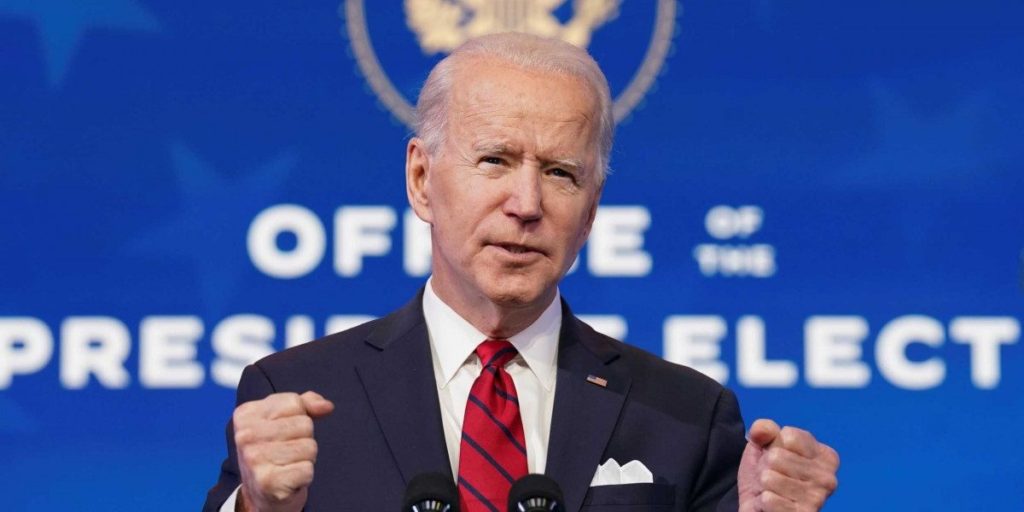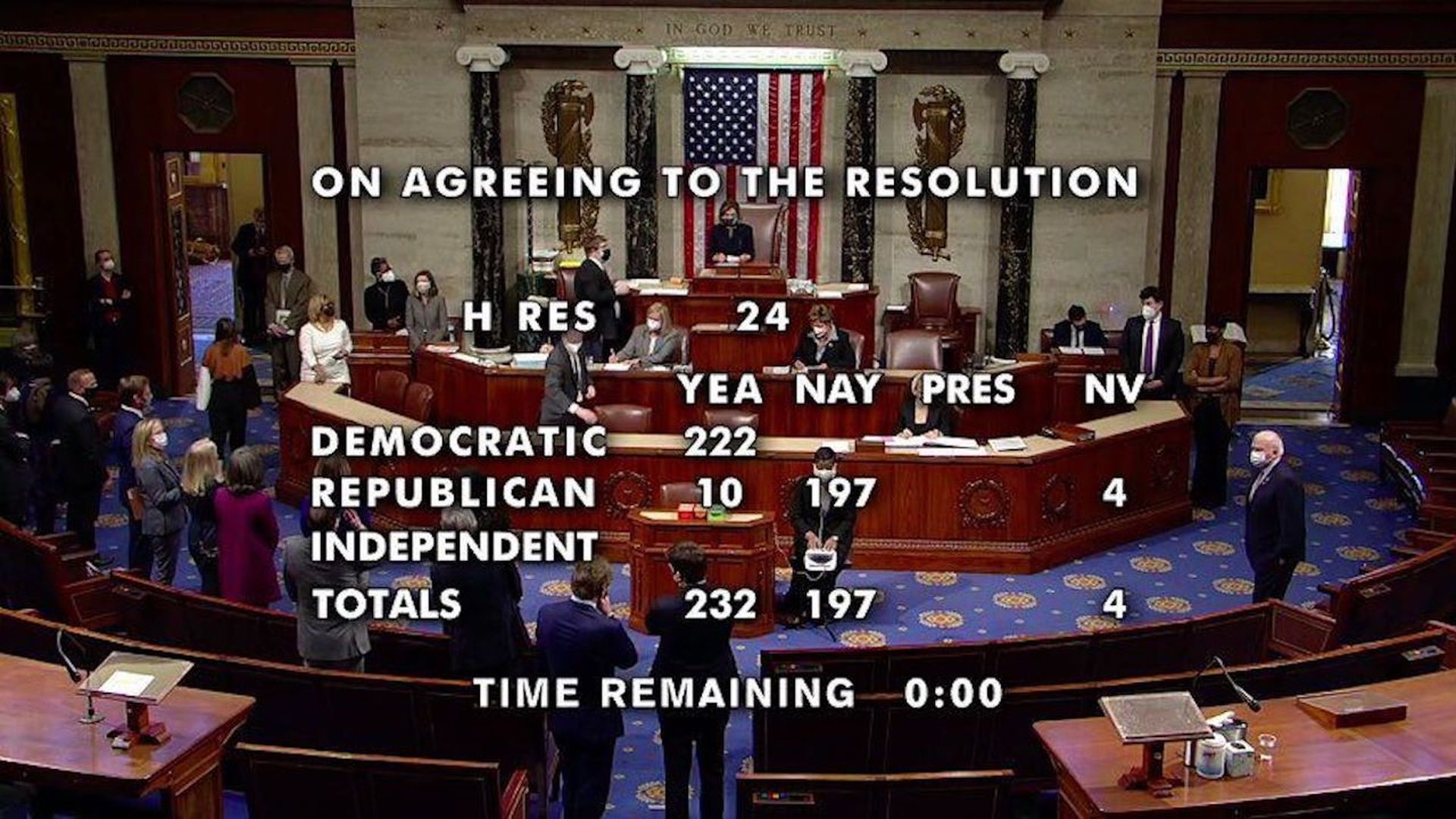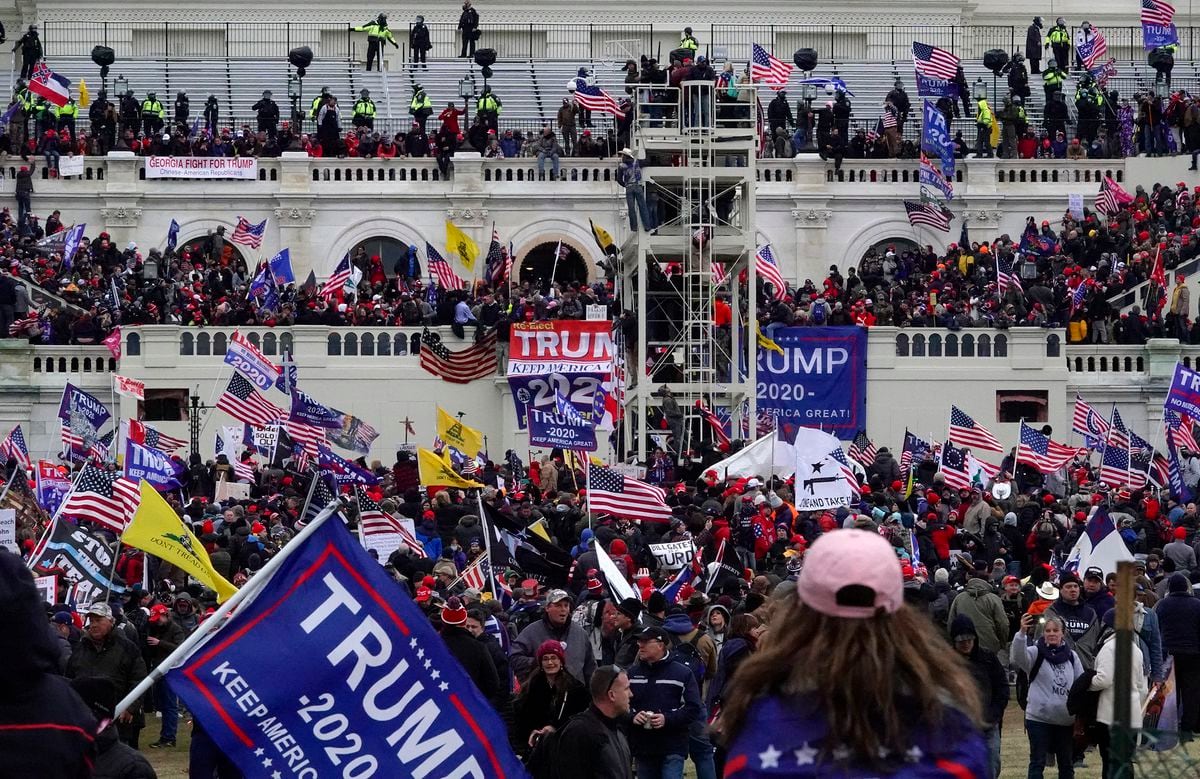President Biden Faces Multiple Crises, Needs Radical Agenda Despite Corporate Opposition

US President-elect Joe Biden speaks about his plan to administer coronavirus disease (COVID-19) vaccines to the U.S. population during a news conference at Biden’s transition headquarters in Wilmington, Delaware, US, January 15, 2021 (Photo: Reuters/Kevin Lamarque)
By Inderjeet Parmar*
The multiple crises that President Joe Biden faces are too many and too deep and systemic to be tackled in the old way or papered over – they require massive state intervention comparable in scale and character to Franklin Delano Roosevelt’s ‘New Deal’ of the 1930s, and embedding in a new global grand bargain acknowledging multipolarity and the effective twilight of the US’s global preponderance. Just like white Americans must accommodate the fact of their ‘majority-minority’ status in 20 years – they will be the largest single racial group but no longer a majority of the population – so must the foreign policy establishment accommodate to the US as the strongest, but no longer totally preponderant, world power.
 The American crisis is stark. Look at the US federal capital – with over 20,000 national guard erecting a ring of steel around the inaugural platform. The US Capitol building in Washington, DC, looks increasingly like Baghdad’s Green Zone – with more US troops deployed for a ‘peaceful transfer of power’ than are based in Iraq, Afghanistan and Syria. The FBI is vetting national guardsmen for extreme right-wing links in case an attack should be launched from within the ‘security’ services. It is a state in the centre of a perfect but terrible storm, reaping the whirlwind sown by the hyper-authoritarian, fascistic, Trump regime, but which is also rooted in a range of crises going back several decades.
The American crisis is stark. Look at the US federal capital – with over 20,000 national guard erecting a ring of steel around the inaugural platform. The US Capitol building in Washington, DC, looks increasingly like Baghdad’s Green Zone – with more US troops deployed for a ‘peaceful transfer of power’ than are based in Iraq, Afghanistan and Syria. The FBI is vetting national guardsmen for extreme right-wing links in case an attack should be launched from within the ‘security’ services. It is a state in the centre of a perfect but terrible storm, reaping the whirlwind sown by the hyper-authoritarian, fascistic, Trump regime, but which is also rooted in a range of crises going back several decades.
There is a feeling that the imperial homeland is on the brink of a descent into an abyss.
Can Biden actually advance an agenda of change and reform – relief, recovery, and reform (the 3 Rs of the FDR era) – and also handle the upcoming Senate impeachment trial of former President Donald Trump? He must, and simultaneously, because the challenges are interlinked. The impeachment trial goes way beyond Trump alone, though he is its focal point. It involves numerous simultaneous congressional investigations of the power and connections of the far right, its extension into the GOP and law enforcement agencies, not to mention the underlying neoliberal philosophy underpinning and necessitating a coercive state to stem the tide of popular resistance and rebellion.
Biden’s political opportunity vs entrenched neoliberalism and corporate power
In Biden, we may have the basis of ‘pragmatic radicalism’. The sheer depth and extent of the pandemic, and economic, social, and international-systemic challenges or crises could be the mother of ‘pragmatic radicalism’ – meaning that no democratic government could or should continue in the old way of doing things because they have not worked, or have only exacerbated the crises. This will not be driven a change of philosophy but pragmatic realisation that the old ways cannot deliver political stability or global power projection.
A key factor weighing towards pragmatic radicalism is Biden’s age, and possibly health, which suggest a one-term-only outlook going into the White House. This brings into play Biden’s sense of his legacy into calculations: how does he want to be remembered by history? Is it as a leader who extirpated Trumpism and the legacies of division and climbing inequality, or one who did business-as-usual elite politics? The latter may well pave the way for Trump II, or Trumpism without Trump. If Biden’s claim is true, that what forced him to run against Trump was the president’s support for white supremacist and neo-Nazi riot at Charlottesville in 2017, then we may expect a thorough-going effort to get to the roots of Trumpism in the GOP.
US crises – a perfect but terrible storm
The US’s crises have converged into a near-perfect but terrible storm: at root, there are basic crises of democracy and election-legitimacy; incendiary partisan division; and discontent over inequality and police violence against minorities across America’s cities. There are millions of working people and their children going to bed hungry in the world’s lone superpower, its City upon a Hill.
The COVID-19 pandemic – the mother lode crisis – is causing a devastating loss of life which shows few signs of abating anytime soon, and has generated a social and economic catastrophe for working people, while enriching the wealthiest billionaires at the same time. This alone represents a political tinderbox of unimaginable proportions. It has highlighted every nook and cranny of a political-economic system that offers little of anything resembling normal life let alone the American dream.
Political protest and violence appears to have become a feature of the American political landscape, a part of its political terrain. It has reared up every few years, but the eruptions of 2020 crossed a psychological line on 6 January – it reached the very halls of government. It was not taken at all seriously by the Democratic party’s national leadership when the Michigan state capitol was invaded by heavily armed extreme right-wingers and white supremacists, threatening to kidnap and assassinate the governor. It’s a different matter when members of congress House and Senate were forced to flee for their lives from Trump’s insurrectionary storm-troopers on 6 January.
The scene Jan. 6 outside the Capitol after a mob of Trump supporters breached the building in a violent riot. Washington Post photo by Bonnie Jo Mount
And it is clear that US authority in world system – among allies and foes alike – has diminished. This was part of a longer term process, of course, as new powers emerged or re-emerged on the world scene, increasing/demanding multipolarity.
Trump’s responses to the above deep crises – i.e., use of intense coercion, America First unilateralism, government and personal irresponsibility, and ‘laissez-faire’ crony-corporate ‘strategy’, anti-immigrant and racial divisions, authoritarianism and encouragement of far right, political polarisation – failed. Not only did they fail, Trump’s solutions to US power crises exacerbated and deepened them and led to his decisive electoral defeat in November 2020, bringing his one term of office to a disgraceful ending with a second historic impeachment to his name and legacy – for “incitement of insurrection” that left 5 people dead.
Biden’s agenda is ambitious, and needs to be
Biden has his work cut out – a deadly pandemic; ailing economy; domestic political instability; climate change crisis; and repairing international relationships and alliances.
In foreign policy, Executive Orders (EO) and Presidential Proclamations are vital to overturn Trump’s largescale EO programme – 210 in four years compared with Obama’s 276 in eight years, Bush’s 290 in eight years and Clinton’s 254 also in eight years. There are numerous significant policy shifts awaiting Biden’s attention – he can overturn the Muslim travel ban, rejoin the Iran nuclear agreement, stop arms sales to Saudi Arabia, extricate the US from its deadly support of Saudi war on Yemen, return US to World Health Organisation membership as well as the UN Human Rights Council, and rebuild diplomatic relations with Cuba. EOs and Presidential Proclamations are highly effective and an instrument of choice to avoid congressional opposition.
But the biggest issue is the shape of the global system, and the US’s role in it vis-a-vis allies, partners, competitors and rivals, and the extent to which US remains the post-1945 world’s preponderant power or one of the most powerful among a number of powerful international actors.
But alongside managing all of the above, especially the pandemic, the extreme right-wing threat to the US system of government must be one of the most urgent. It is probably the single most critical crisis that goes to the very heart of state power, as well US world power, and global role and standing. That makes the Senate impeachment trial, and a number of other congressional investigations into the long- and short-term sources of the 6 January insurrectionary attack on the US Capitol, central to the Biden agenda.
 Trump became the first president in American history to be impeached twice (Photo: House TV)
Trump became the first president in American history to be impeached twice (Photo: House TV)
Senate impeachment trial: An essential reckoning
This will clearly take time and attention from the enormous burden of immediate government business, as I argue above. But there should be no stone left unturned in getting to the bottom of the power of the far right and its reach into the police, military and the GOP. Any superficial truce on this matter only papers over the cracks in the name of ‘national healing’ and ‘unity’. Burying the problem now will only store up a far greater explosion in the future. There should be no appeasement of the violent extreme right and their allies in Congress.
It is essential to draw a line under the failed strategy and abuses of power of President Trump and his extremist political faction by full, public investigations and radical reform. We are not talking about a truth and reconciliation commission but something that exposes to the light the roots, organisational power, networks, and reach of the extreme Right in America. The Senate impeachment process will supplement and encourage other congressional investigations of the events and roots of the 6 January insurrection. It will expose and tackle the roles of law enforcement at all levels in the Capitol insurrection.
There is an added political advantage by doing this for Biden and the Democratic party: it may further divide and weaken the Republican party – auguring a probable ‘political’ win for the Democrats going into 2022 mid-term elections.
In the end, American government is ‘party government’. And it is driven by short-term electoral calculations, and massive corporate donations. But we are in unprecedented times. Will President Biden, who has reached the pinnacle of his long political career at so critical a moment, govern with the bigger picture in mind – embrace a politics of pragmatic radicalism? He has the opportunity. Does he have the will?
* Inderjeet Parmar is professor of international politics at City, University of London, and visiting professor at LSE IDEAS (the LSE’s foreign policy think tank). Professor Parmar is also a member of the advisory board of INCT-INEU (Brazil’s National Institute of Science and Technology for Studies about the United States). His Twitter handle is @USEmpire.
** Originally published at The Wire, Jan 20, 2021. This article does not necessarily reflect the opinion of OPEU or INCT-INEU.






















